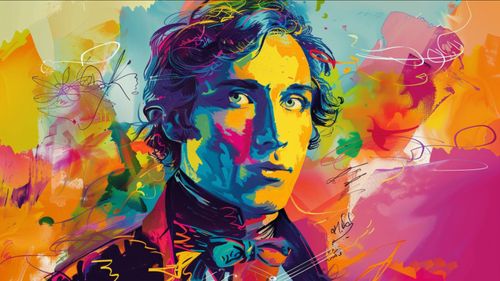What Kind of Poet was John Keats? A Nutshell Guide...
Feb 23, 2024 · 2 mins read
0
Share
John Keats, a name synonymous with lyrical beauty and tragic life, was a poet who painted with words, turning every verse into a vivid canvas that captures the essence of human emotion and the natural world.
Save
Share
Born in 1795, Keats' life was a brief candle, extinguished at 25. Yet, in his short span, he crafted poems that would outlive centuries, proving that brilliance doesn't count the years but the depth of impact.
Save
Share
Unlike his contemporaries, Keats was not born into wealth or academia. A trained apothecary, he chose the pen over the prescription pad, mixing potions of words that healed souls instead of bodies.
Save
Share
Keats' poetry is a feast of the senses. In "Ode to a Nightingale," he invites us to hear the song of the nightingale, to taste the "vintage" of poetic inspiration, and to feel the ache of mortal sorrow, all within the span of a stanza.
Save
Share
He was a master of the "Ode," a form he wielded to explore beauty, truth, joy, and sadness. His "Ode to a Grecian Urn" whispers the eternal message: "Beauty is truth, truth beauty," a line that echoes through the ages.
Save
Share
Keats' work is steeped in Romanticism, but he stands out for his intense focus on the internal experience and the fleeting moments of happiness, rather than grandiose declarations of love or nature.
Save
Share
His concept of "Negative Capability" - the ability to embrace uncertainty and dwell in mysteries without seeking logical conclusions - revolutionized poetic thought, encouraging a surrender to the beauty of the unknown.
Save
Share
Tragically, Keats' life was shadowed by illness, love unfulfilled, and critical scorn. Yet, these sorrows only deepened his well of empathy, from which he drew the water to quench the thirst of his soulful creations.
Save
Share
Keats' legacy is a testament to the power of resilience. Despite his work receiving lukewarm reception during his lifetime, today he is celebrated as one of the greats, a beacon for all who dare to dream and create amidst adversity.
Save
Share
In the end, John Keats was not just a poet; he was a philosopher of beauty, a seeker of truth, and a guardian of the human heart. His poetry invites us to pause, to breathe, to feel deeply - a gift that keeps on giving, long after his final verse.
Save
Share
0
